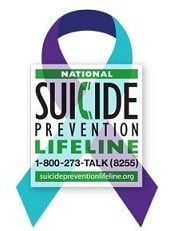If you’re the parent of a youngster, you know how active and loud they can get. You know how full of energy they seem and you know they sometimes willfully disobey what you’re asking them to do. But how can you be sure if your child, who seems to be going in every which direction, is simply doing so by choice or is having a medical problem that he/she can’t control?
Attention Deficit/Hyperactivity Disorder affects approximately 5% of the nation’s children, with speculation the true number is closer to 10% according to the National Institute of Mental Health. Unlike many childhood ailments, ADHD doesn’t have a specific test to use for diagnosis. Instead, mental health professionals will talk with family members and teachers and try to piece together a true snapshot of what’s going on.
Signs of ADHD reveal a pattern of behavior. For instance, is your child being forgetful? Does he/she seem to daydream a lot or seem not to be able to pay attention or concentrate? Does your child show impatience in minor tasks, like learning to take turns, or show signs of squirming or fidgeting when seated? Does he or she talk excessively or become excessively active (climbing or running) with little regard to their surroundings? Is he/she loud and constantly interrupting others? Distracted easily? Even appear defiant or aggressive?
As seen above, it’s easy to understand why parents pose the question if this is a medical condition or simply a child out of control who willfully plays loud, interrupts, is rude and self-centered due to bad behavior. If the child is out of control while visiting grandma, but can sit still for hours playing video games, what does that tell us? If the child is being a blatant brat, then perhaps some family discipline can pull the child back into the family and civility. However, parents are confused and concerned that they will try to discipline a child who has a medical problem and can’t help what they’re doing.
Normally, ADHD is something diagnosed before the age of 7. It has to have manifested itself in ALL aspects of the child’s life, not just things they don’t like. It also has to have been something observable for at least a six month period. These are just guidelines, of course.
The best way to determine if your child is in need of more direction or in need of medication is by taking him or her for diagnosis with a professional. As mentioned, there is no definitive test for ADHD. A wrong diagnosis can put a child on serious medications without them being needed, or it can lead to a family bent on more discipline to rein in a child who simply, medically can’t help what they do.
It’s hard enough to be a parent today without expecting yourself to diagnose a possible chemical imbalance. Reach out to ADHD counselor Tracy Crain for more information and insight into what may be wrong.






